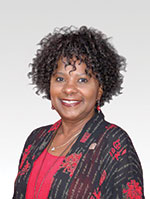Victoria Elaine Romero
Victoria E. Romero is the lead author of Building Resilience in Students Impacted by Adverse Childhood Experiences: A Whole Staff Approach and Race Resilience: Achieving Equity Through Self and Systems Transformation.
Victoria taught elementary students in one suburban and 2 urban school districts; significantly improved the academic standing of 2 schools as a principal; and coached administrators, directors, and school leadership teams for sustainable school improvement in 5 school districts. She facilitated professional development for K-12 teachers on classroom strategies that promote student academic success, infusing multiple perspectives into the regular curriculum, and establishing schoolwide and classroom management systems that promote autonomy, positive well-being and resiliency. Victoria was a school improvement facilitator for Office of Public Instruction (WA) and the Everett Public Schools. Two of the 4 schools were recognized by the state for making significant academic gains.
Victoria is an independent consultant for Corwin, specializing in facilitating staff development and coaching leaders in managing the systemic implementation of trauma-sensitive strategies, tactics for supporting educator and student resilience, and coordinating trauma-sensitive multitiered support systems. She has worked with the West Des Moines Community Schools (IA), Contra Costa County Office of Education, Sacramento County Office of Education, Alaska Council of School Administrators, and Madrona PreK-5 in Seattle, WA.
Victoria has presented her work at Corwin’s Annual Visible Learning Conference and Deep Equity Institutes, Glenn Singleton’s Courageous Conversations Institute, and Eddie Moore’s White Privilege Symposiums. She has been a keynote speaker for the Washington Association of School Administrators and with Gary Howard is author of We Can’t Lead Where We Won’t Go.
Her website is www.buildingresilienceinstudents.com
Workshops
Building Resilience in Students Impacted by Adverse Childhood Experiences (2 or 4 Days):
Participants will deepen their understanding of the impact of ACEs and trauma on students’ learning and behavior. Research has shown that ACEs and trauma affect a child’s brain development, cognition, behavior, and social-emotional development. By building our knowledge of the impact of ACEs, we strengthen our “why,” or the reason that we engage in this work, while gaining insights that make us more effective school professionals. School-wide systems that engage the entire staff to create a universal culture of compassion and achievement can provide students with consistent support, structure, and nurturance.
- Expand your capacity to foster resilience and success for your students and yourself.
- Learn strategies for cultivating self-awareness, growth mindset, resiliency, and self-care
- Develop multi-tiered strategies to support the behavioral, social-emotional, and academic success of all students, especially those impacted by ACEs and trauma
- Develop action plans to implement a multi-tiered trauma-informed framework in schools
Race Resilience
As schools engage in courageous conversations about how racialization and racial positioning influences thinking, behaviors, and expectations, many educators still lack the resources to start this challenging and personally transformative work. Race Resilience workshops offer guidance to educators who are ready to rethink, review, and redesign their support systems and foster the building blocks of resiliency for staff.
Participants will be engaged in activities to help them understand:
- Who we are as racialized human beings and the impact it has on our perceptions of others
- How to develop race resilience to stay engaged, be comfortable with discomfort, speak honestly and listen actively to each other’s stories of racialization
- How to apply the previous learning/understanding to build collective efficacy to identify the strengths and areas of growth in their current teaching and learning school culture
- How to establish protective elements that support social-emotional well-being in staff and students, especially as it relates to their racial identity
- How to integrate the attributes of high-performing educators to improve academic and behavioral outcomes so that more of our students, across more of their differences are proficient learners (Howard 2016)
- How to create school cultures with systems that are sustainable and accountable
What People are Saying ...
"Ricky, Amber and Victoria delivered a three-day workshop and it was absolutely phenomenal. They were engaging and created a space where participants could dive into the material in a way that left them understanding not only how trauma effects our students but also inspired to make change. Several participants noted how it was the best professional development they have ever attended."
~ David Fendel, Coordinator of Social Emotional Learning, Contra Costa County Office of Education, CA
